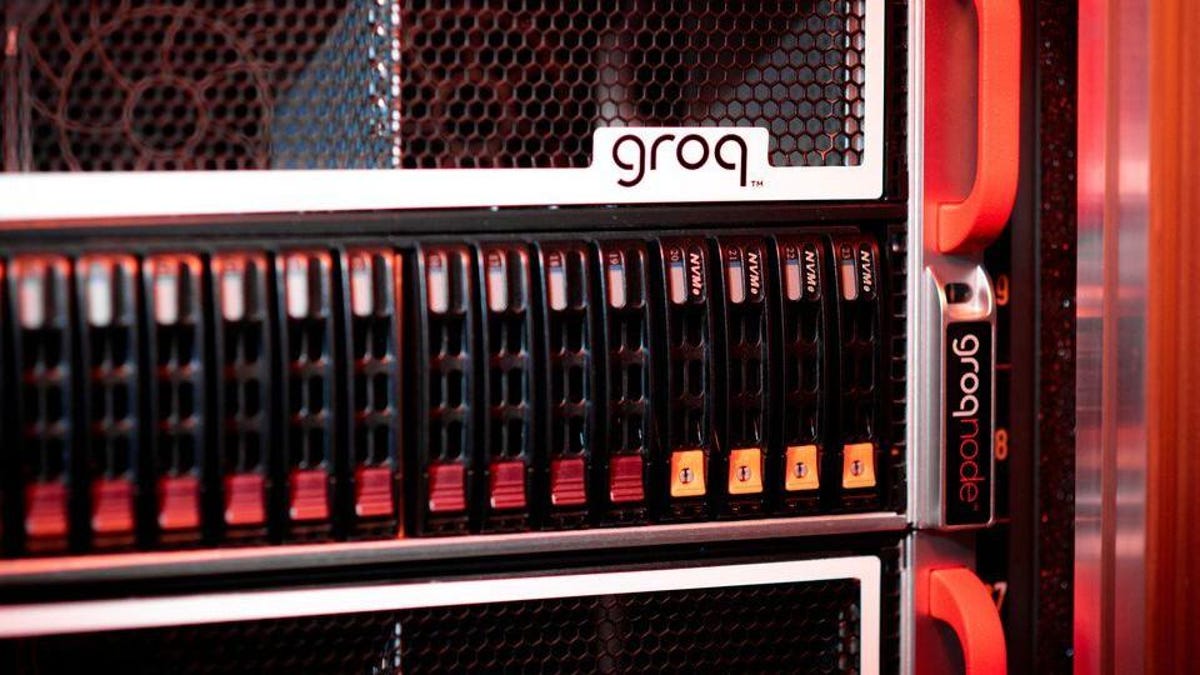Groq, an artificial intelligence chip company, aims to shift the focus away from Elon Musk’s Grok, a chatbot with a similar name known for its snarky remarks. Over the weekend, Groq showcased lightning-fast demonstrations that overshadowed current models like ChatGPT, Gemini, and even Grok. The company boasts of offering the “world’s fastest large language models,” a claim supported by third-party tests.
During a demo on X, Groq impressively generated hundreds of words in a factual response with source citations in a fraction of a second. In another demonstration, founder and CEO Jonathon Ross facilitated a real-time verbal conversation between a CNN host and an AI chatbot located halfway across the globe, showcasing Groq’s remarkable speed. While existing chatbots such as ChatGPT and Gemini are noteworthy, Groq has the potential to elevate their performance to lightning-fast levels, opening up practical applications in various real-world scenarios.
Revolutionizing Speed with Groq’s AI Chip
Groq specializes in developing AI chips known as Language Processing Units (LPUs) that claim superiority over Nvidia’s Graphics Processing Units (GPUs) in terms of speed. While Nvidia’s GPUs are widely recognized as the industry standard for AI model processing, early indications suggest that LPUs could outperform them significantly.
Unlike chatbots like ChatGPT, Gemini, and Grow, Groq functions as an “inference engine” that enhances the speed of these chatbots without replacing them entirely. On Groq’s website, users can experiment with different chatbots to observe the speed enhancements when powered by Groq’s LPUs.
According to a recent third-party test by Artificial Analysis, Groq achieves a token output of 247 tokens/second compared to Microsoft’s 18 tokens/second. This implies that if ChatGPT were to operate on Groq’s chips, it could potentially run over 13 times faster.
The accelerated speeds offered by Groq could significantly enhance the utility of AI chatbots like ChatGPT, Gemini, and Grok. One prevalent challenge faced by these models is the inability to keep pace with real-time human speech, resulting in robotic conversational experiences. Despite Google’s recent embellishment of Gemini’s capabilities, Groq’s advancements in speed could turn such demonstrations into reality.
Prior to Groq, Ross played a key role in establishing Google’s AI chip division, which developed cutting-edge chips for AI model training. With LPUs, Ross asserts that Groq overcomes two critical bottlenecks faced by GPUs and CPUs: compute density and memory bandwidth.
The name “Grok” originates from Robert Heinlein’s 1961 science fiction novel, Stranger in a Strange Land, where it signifies “to understand profoundly and intuitively.” This term has become popular among AI companies to describe their products, with Ross’s Groq and Musk’s Grok being prominent examples.
Apart from Ross’s Groq and Musk’s Grok, there is also an AI-enabled IT company named Grok, along with Grimes’ AI toy, Grok, reportedly inspired by the pronunciation of “Grocket” by Musk’s children. However, Ross asserts that Groq was the first to use the name back in 2016.
In a blog post from November, Ross welcomed Elon Musk to “Groq’s Galaxy,” emphasizing that Groq is a trademarked entity distinct from Musk’s xAI’s version of Grok. While Groq is generating significant attention, its scalability compared to Nvidia’s GPUs or Google’s TPUs remains to be seen. AI chips have become a focal point for OpenAI CEO Sam Altman, who is contemplating developing his own. Groq’s advancements in chip speeds have the potential to revolutionize the AI landscape, paving the way for enhanced real-time interactions with AI chatbots.










